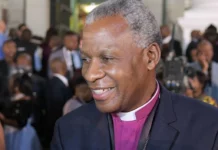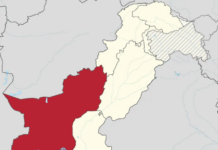I, like I am sure many others, felt a combination of astonishment, incredulity and growing anger at what happened during the safeguarding debacle at General Synod on Sunday 9th July. The troubles of course centred on the Independent Safeguarding Board (ISB). Quite what such a spectacle was meant to achieve I do not know, it certainly did nothing to help safeguarding in the Church of England. For me, it reinforced my concern that the Archbishops’ Council has been slow to listen to those with organisational and safeguarding expertise.
In March 2023 the then Chair of the ISB resigned and I was approached by the Archbishops’ Council to take over as Acting Chair. I agreed and was clear this was a temporary contract until the end of the year and no more. I allocated between 2 and 3 days a week to the work, and in the expectation it would be time consuming, turned down four requests to work with projects overseas.
Unfortunately, despite warm words from Council members, over the 3 months that followed they failed to support me as Chair in developing plans for phase 2 of the ISB, indeed the Archbishop of Canterbury actually undermined me.
I was requested specifically to go back to “first principles” in developing proposals for a fully independent body. Upon joining the ISB, I had expected to find examples of scrutiny activity and a significant body of work developing options for a fully independent organisation. I did not locate any. Since August 2022 the output appears to be one report on survivors, one case review – commissioned from and written by an independent reviewer and a report to the Archbishops’ Council. This report was a proposal for development of phase 2 which was found to lack necessary detail. No discussions had taken place with the National Safeguarding Panel (NSP), which I chair, despite it being referenced in that report.
Although they initially welcomed my appointment, the two existing Board members routinely ignored emails, failed to respond to reasonable requests and declined to have meetings. I was staggered at this unprofessional behaviour, particularly when concerned with such an important issue as safeguarding in the Church. Their stated reason was that being Chair of the ISB was a conflict of interest with my chairing of the NSP, a role they knew I was due to finish in the summer. As a paper, endorsed by last year’s Synod, set out that the NSP and ISB would work closely together on phase 2, there never was a conflict of interest.
The Archbishop of Canterbury intervened. He wrote to all three members of the ISB urging that we work co-operatively. However, rather than endorsing the reasons for my appointment and stating he expected professional behaviour from everyone, he indicated a desire “to move as swiftly as possible towards the appointment of a substantive new Chair” – a statement that was no doubt taken as a signal by the two ISB members that they could continue their behaviour as they would soon be rid of me.
On behalf of the Archbishops’ Council, the Archbishop of York led efforts to gain the co-opera5on of the two members of the ISB. Despite an initial positive meeting, the two ISB members then issued a dispute notice and refused to discuss their concerns with the Archbishops’ Council. The Council finally concluded that the two were not going to change their stance making progress impossible. The Council issued letters terminating our roles and requested I continue to undertake some safeguarding planning work.
On Saturday at Synod, I was surprised and concerned to hear the Archbishop of Canterbury state that he and the Archbishop of York had wanted to delay taking action. On Sunday, I was further dismayed when members of the Archbishops’ Council failed to fully explain and confirm their decision to appoint me as Acting Chair. I was further outraged when it was suggested that I should speak to Synod to explain the Archbishops’ Council’s decision. Again, and very publicly, the Archbishops’ Council failed to support me and explain their own decision making. It was not my role to defend them from questions and attacks from the floor!
I have chosen not to respond to many untrue and unfounded statements in the media and on Twitter, many from anonymous sources. Safeguarding professionals would never publicly comment on individual cases and investigations, and certainly not have conversations on social media with children or alleged perpetrators. Safeguarding is too important and deserves considered and careful debate in appropriate settings. A number of survivors have contacted me, distressed at the way these issues have being handled.
Regrettably I have concluded that I cannot rely on the support of the Archbishops’ Council in any future safeguarding work with the Church of England. Until they are prepared to act on professional safeguarding advice, sensible and achievable plans will not be put in place. The total cost of the ISB to date has been over £730,000 – with many dioceses struggling to fund their safeguarding work, this must be considered a huge waste of money.
I want to thank all those who offered support including a number of survivors, Independent Chairs of Diocesan Safeguarding Advisory Partnerships, members of the NSP, professional and safeguarding staff across the Church, and those who are ordained in or worship in Anglican churches. The Archbishop of York has been generous and concerned in his support but he could have been stronger on Sunday at Synod. My 5 year appointment as Chair of the National Safeguarding Panel ends this summer and I will be chairing my final meeting shortly.
Meg Munn
12th July 2023
Safeguarding in the Church of England in crisis?
The handling of issues with the ISB has been woeful but it is wrong to say that safeguarding in the Church of England is in crisis. The majority of safeguarding happens at parish and diocesan level, as does oversight and scrutiny. Dioceses have Independent Chairs of Diocesan Safeguarding Advisory Partnerships (DSAPs).
All I have met, have been former senior safeguarding professionals. The ISB had agreed to co-ordinate the work of the Chairs, but astonishingly dropped that work in October 2022 without informing anyone. Chairs of DSAPs see this as a huge missed opportunity.
The Church also has excellent safeguarding professionals working both in the National Safeguarding Team and as Diocesan Safeguarding Advisors. The Archbishops’ Council needs to listen to their advice.
This does not mean the Church should be complacent, there is more to do and the Church cannot yet be confident that it is as safe as it can be. Raising awareness, training and supervising clergy, church officers and volunteers are all important activities as is the improvement, development and implementation of all safeguarding policies. Independent scrutiny and oversight of that work both nationally and in dioceses is vital.
Background
Meg Munn is a qualified social worker with 20 years of front line experience, and a fellow of the Chartered Management Institute. In 2018 following a rigorous recruitment process, including an interview by survivors of church abuse, Meg was appointed as the Independent Chair of the National Safeguarding Panel (NSP) for a term of 3 years, renewable for a further 2, with a contract for up to 30 days a year. The NSP’s remit is independent scrutiny of the church’s policy and procedures.
Recognising the demand for more scrutiny, particularly of the work of the National Safeguarding Team (NST) and of individual cases, it was proposed to establish an Independent Safeguarding Board (ISB) with the responsibility to seek assurances on the quality and standards of safeguarding practice and culture across the church.
Since the inception of the ISB, there has been recognition of the overlapping remit with the NSP and a need for a new structure to encompass all aspects of safeguarding scrutiny. The was due to be addressed by Phase 2 of the ISB commencing at the end of 2023. In July 2022, the General Synod endorsed a proposal that the ISB and NSP work together to propose the new structure.



